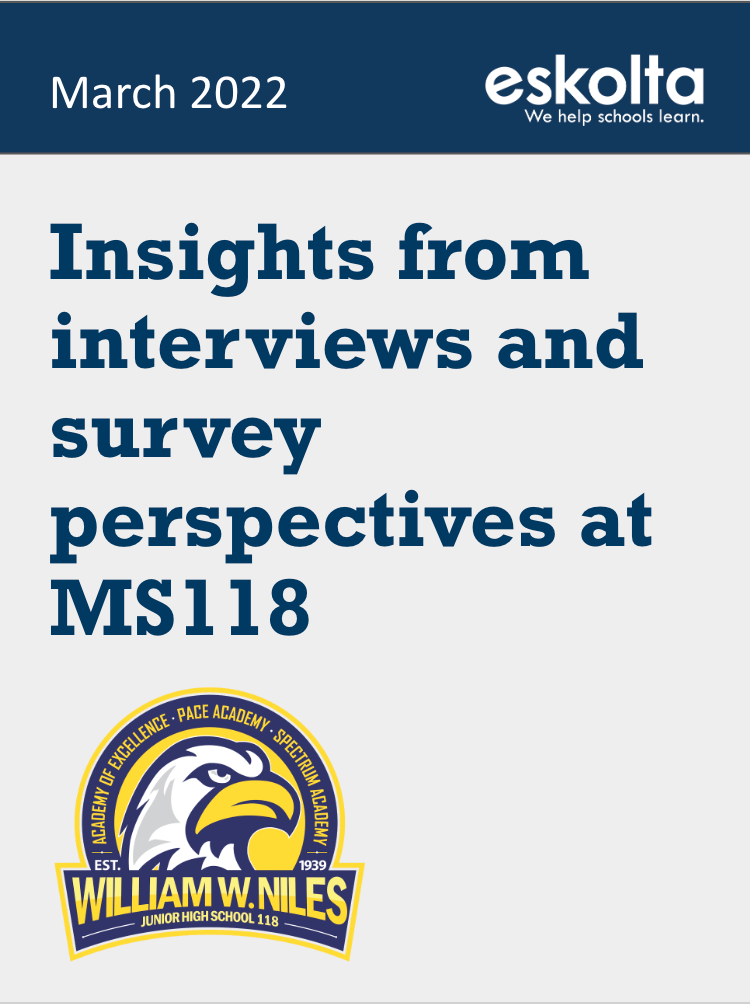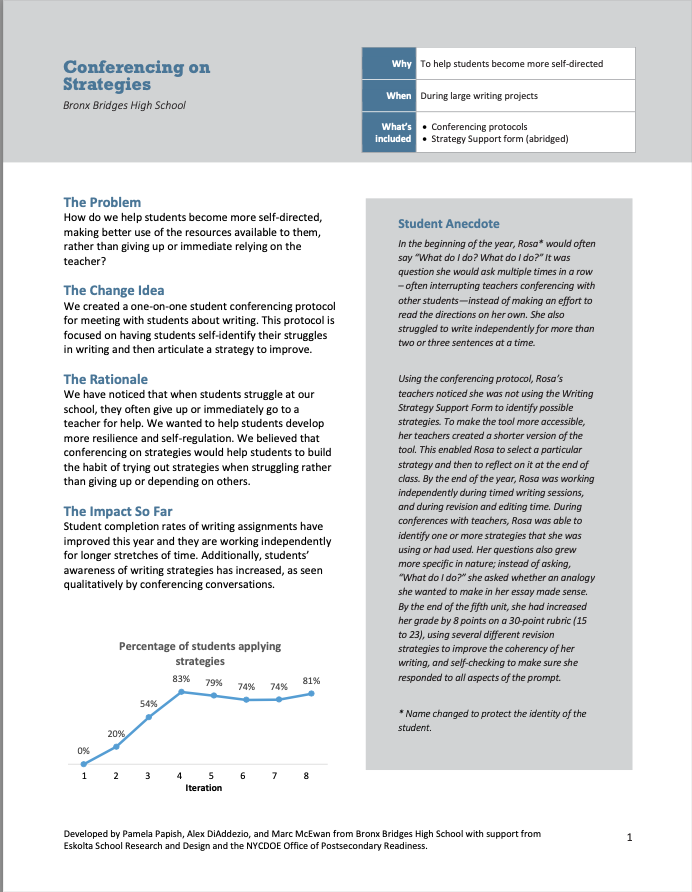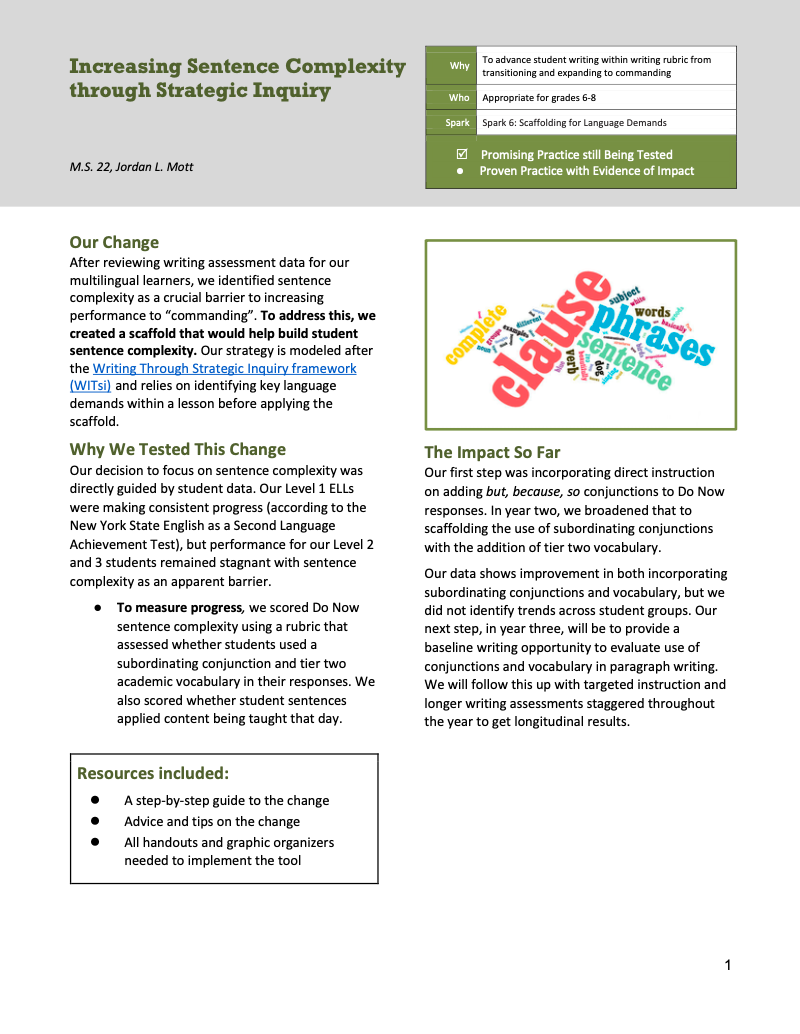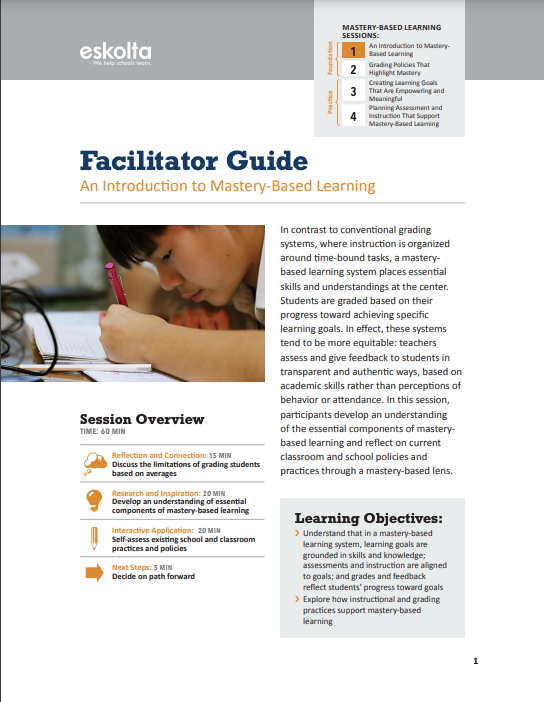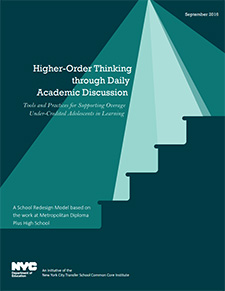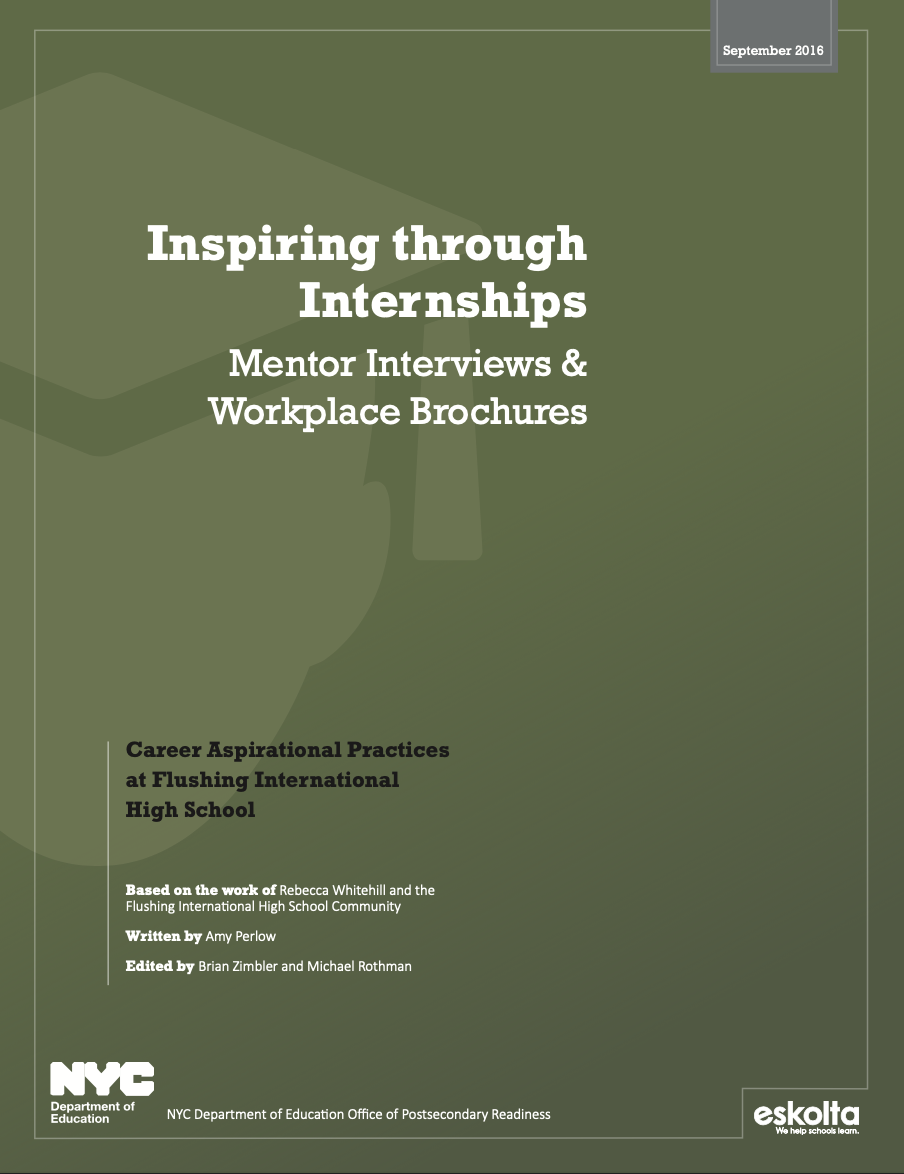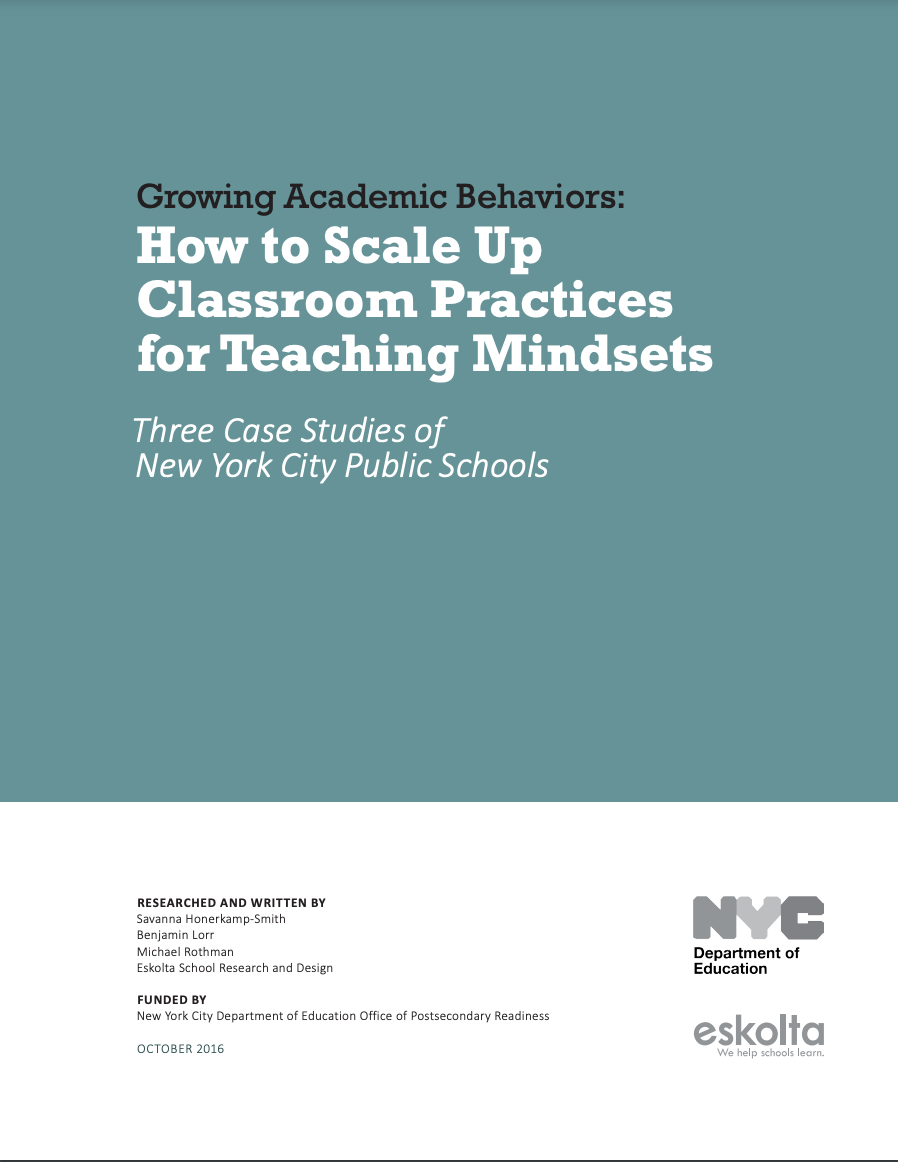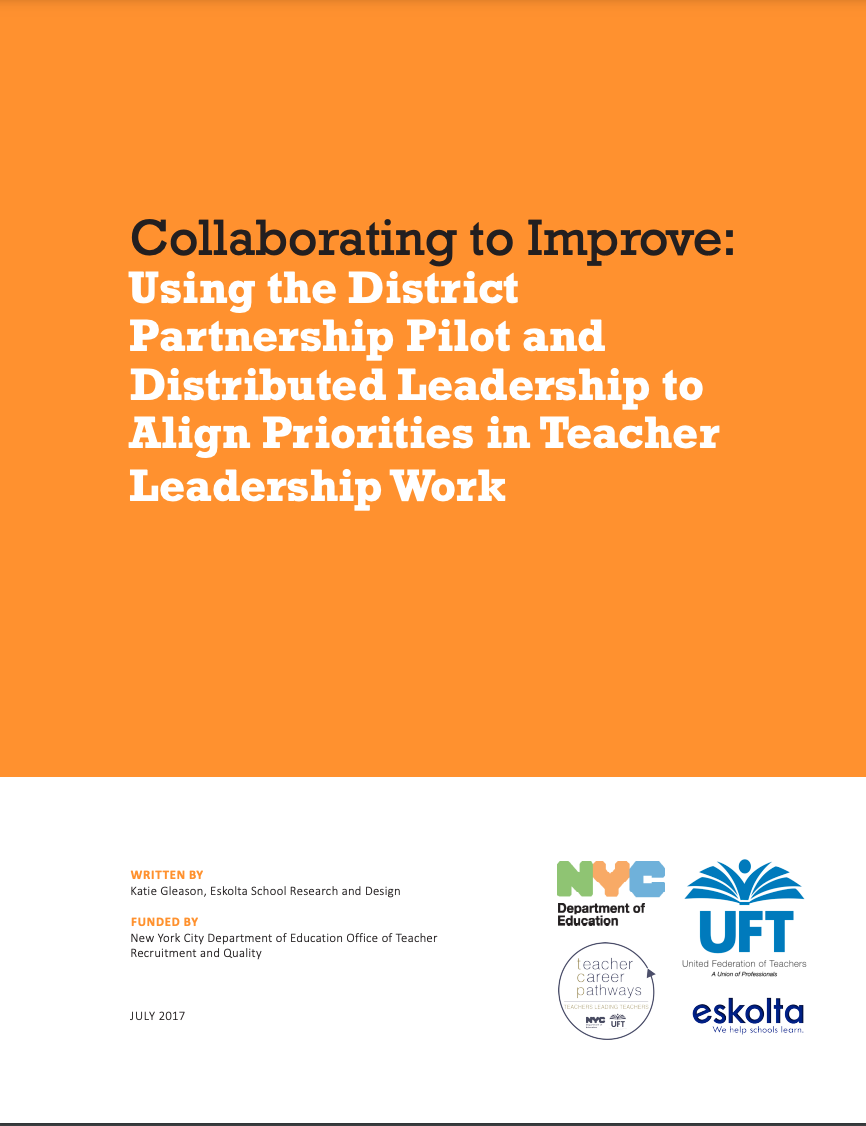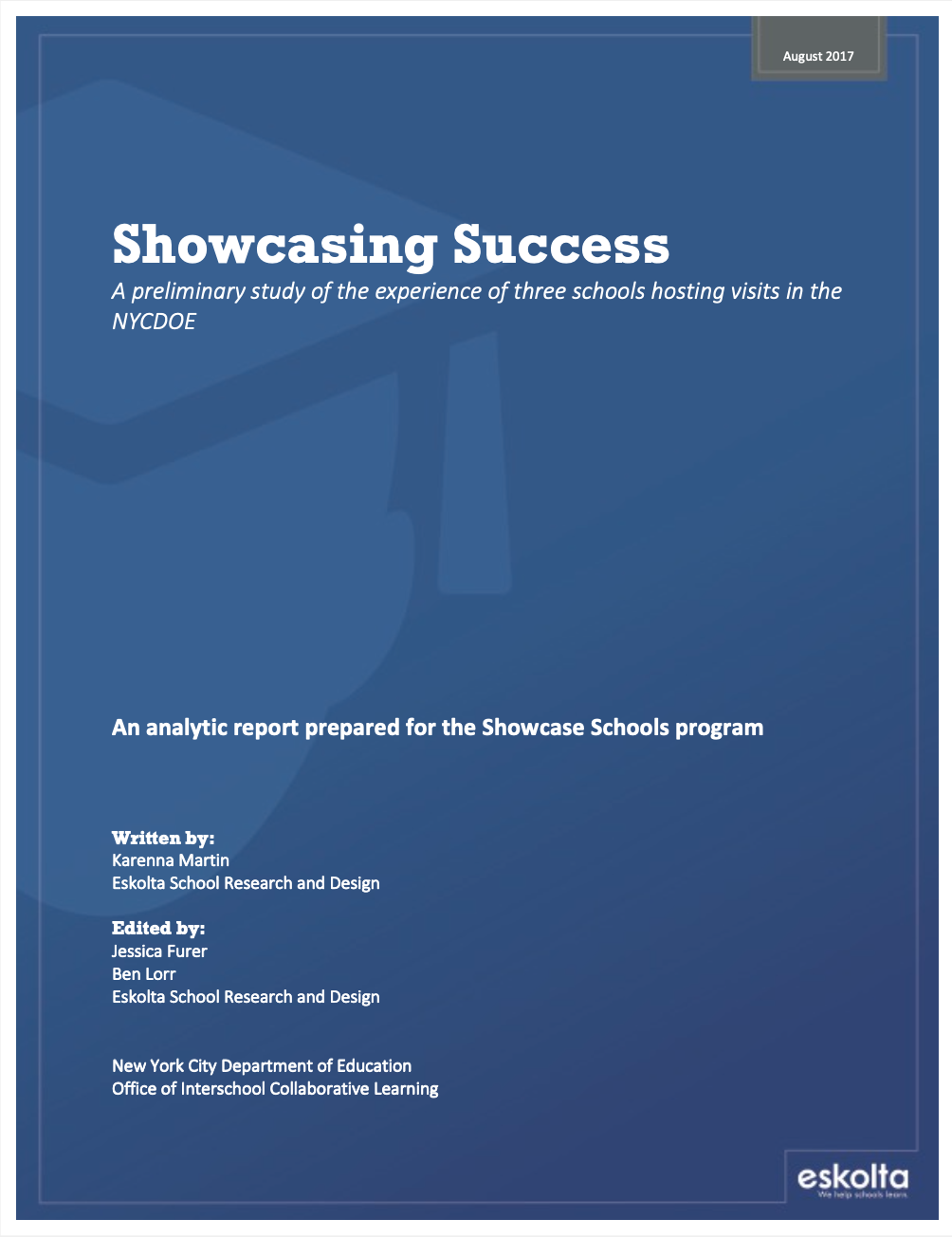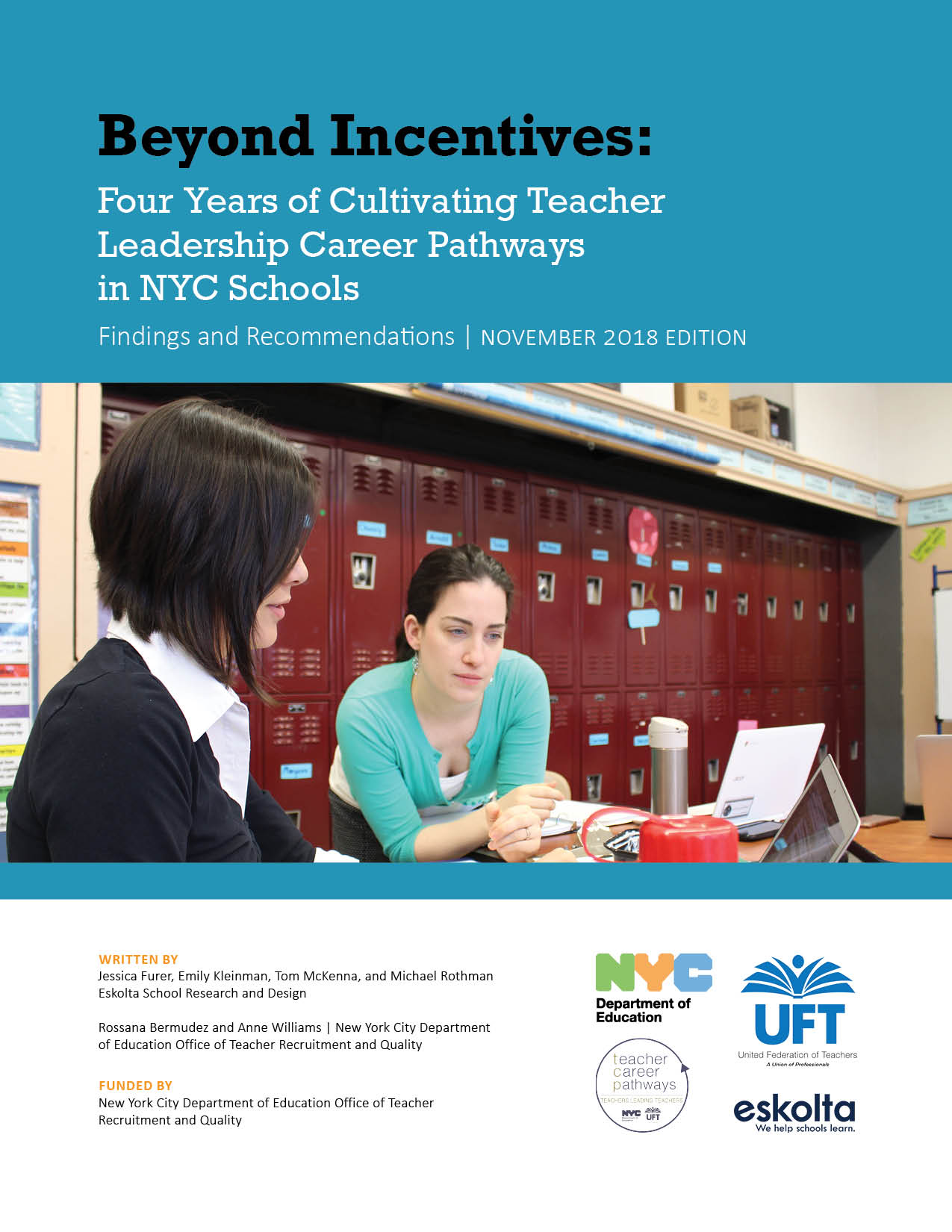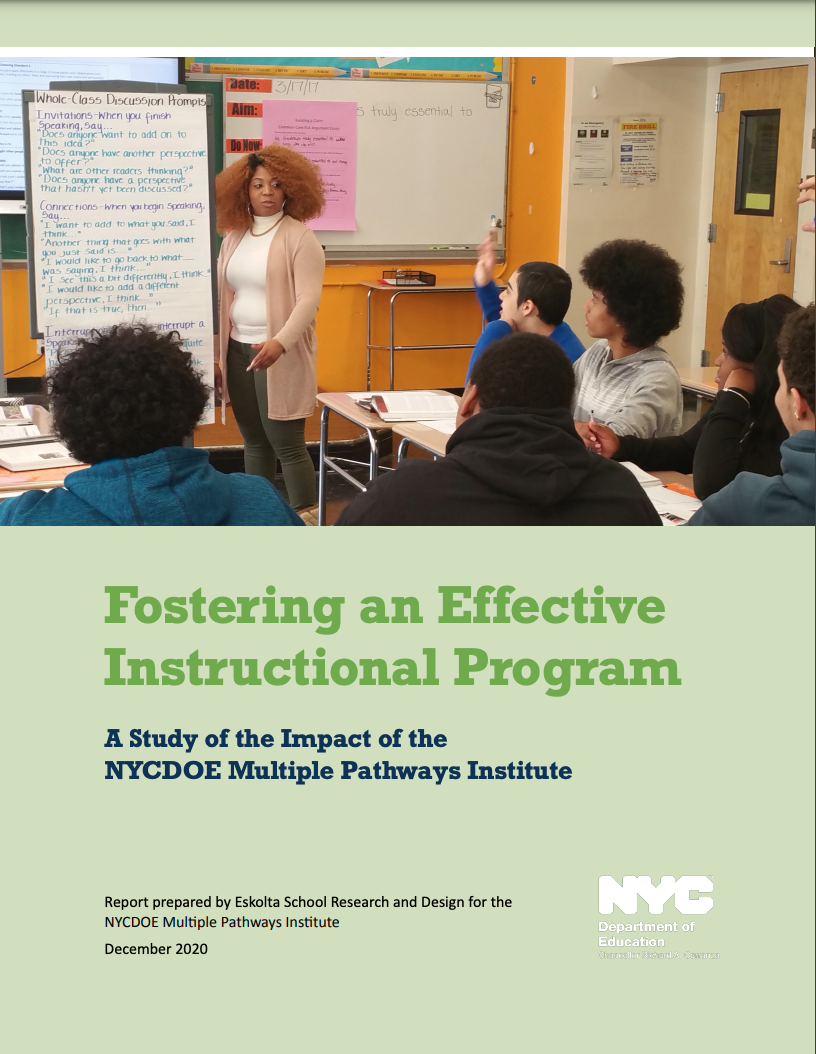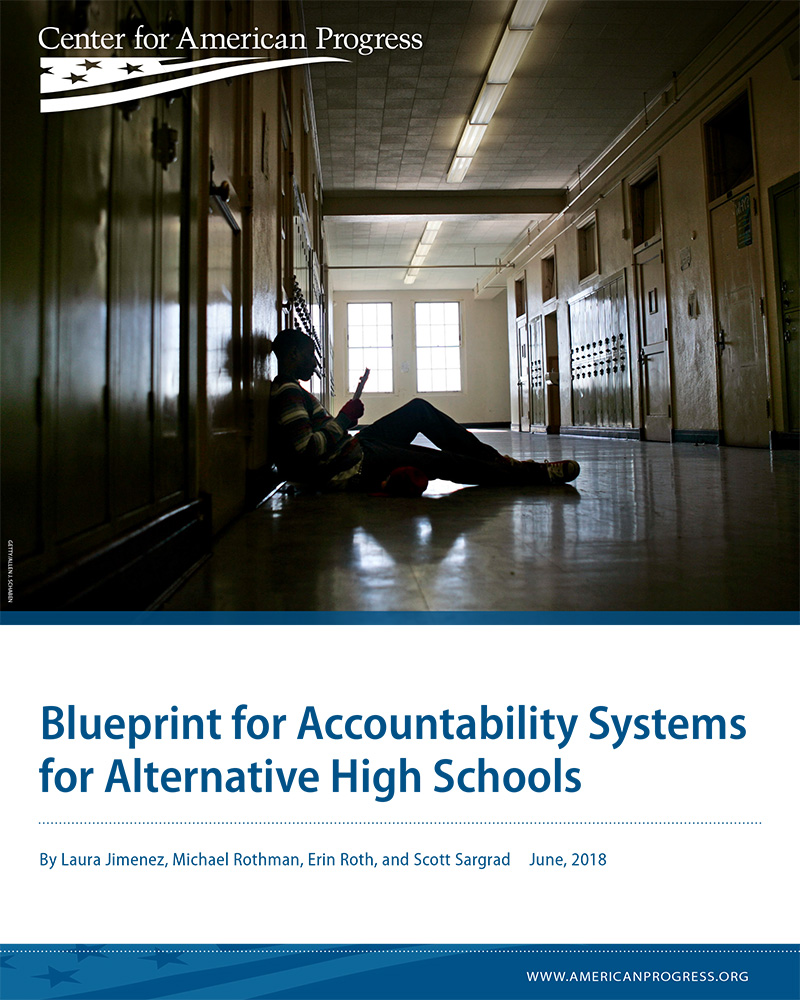How We Document Learning
At Eskolta, we help schools, districts, and community organizations tell their stories and codify their successes. Our approach begins by diving deep into practice, elevating key voices, and communicating in a way that engages the right audience—students, families, teachers, district leads, or the national press. We believe the way an insight is captured—whether written up as a classroom tool, videotaped as a case study for wide distribution, or made into a clickable dashboard for taking action—makes all the difference in whether it has lasting impact or ends up growing dusty on a shelf.
1. Learning applied quickly in context:
Formative Data Reports
Trends and findings from analysis of student data to inform inquiry, focus areas, or intervention design
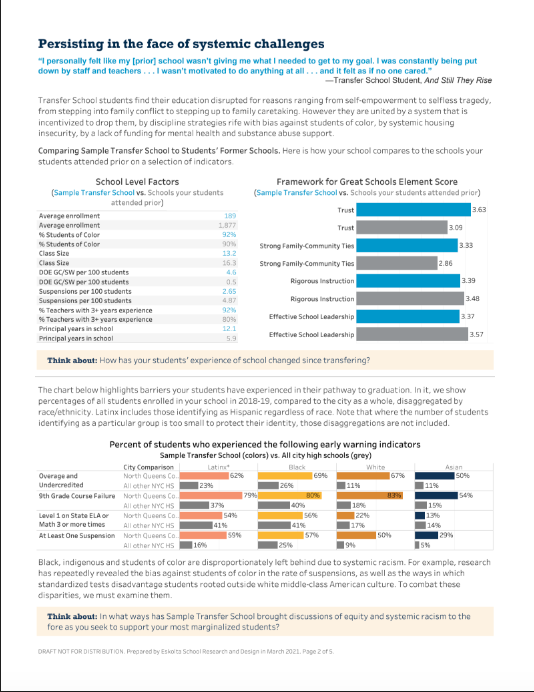
EXAMPLE: Eskolta Network School-level report
Starter Kits and Change Packets
Documentation of a practice, including step-by-step instructions, classroom tool templates, and guidance for use
Curriculum For Coaches
Ready-to-go materials for individuals leading inquiry and school change projects with educators
2. Learning to showcase effective practice:
Toolkits, Handbooks, and Guides
Practical, implementable guidance on a promising school or district practice, with recommendations and templates
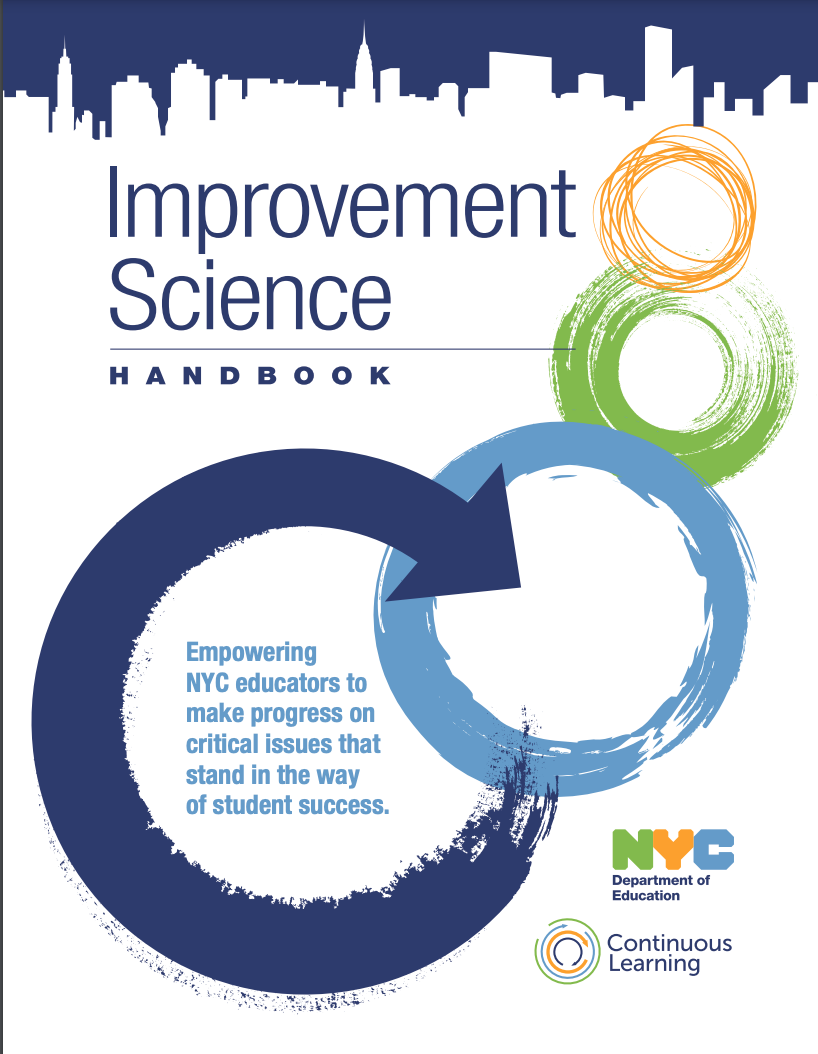
EXAMPLE: NYCDOE Improvement Science Handbook
Videos
Engaging videos that bring to life an effective school or district practice through the voices of youth and practitioners
Case Studies
Detailed accounts of practices told through story, highlighting themes and insights to assist educators in reflection
Analytic Studies
Reports outlining findings from quantitative analyses of school or district data with recommendations to inform policy decisions
Anchor Documents
Overview documents defining core program elements including offerings, theory of change, and impact to support communication with a range of audiences
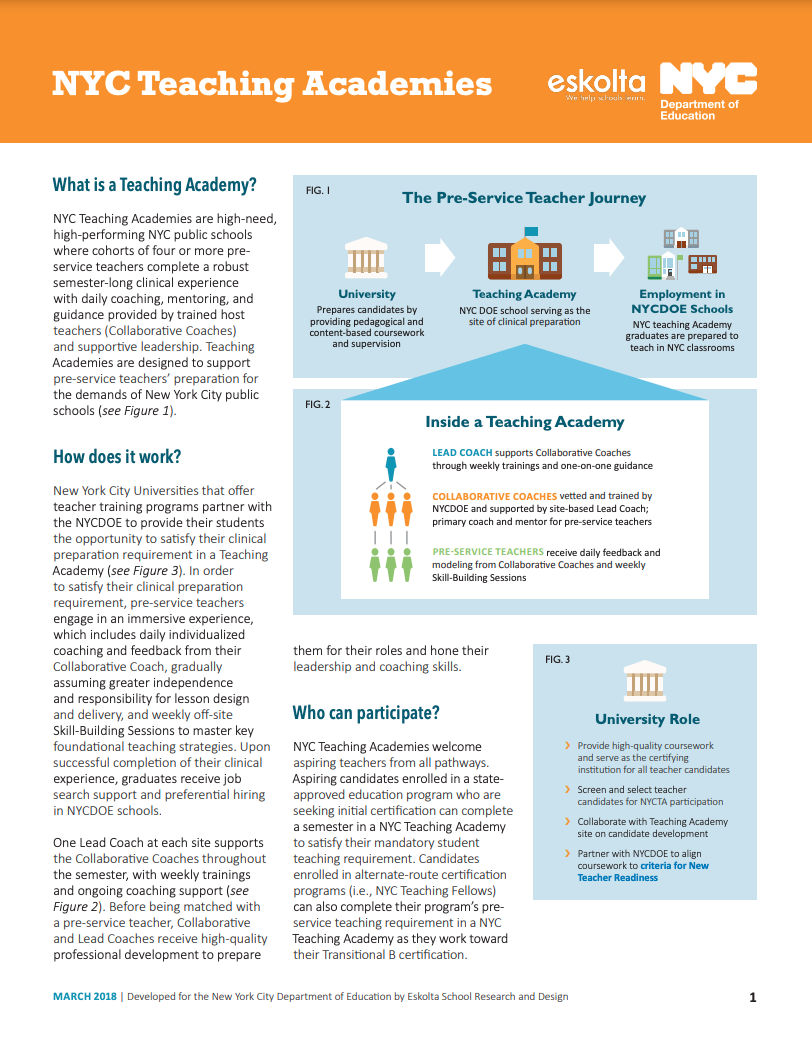
EXAMPLE: NYC Teaching Academies multipager
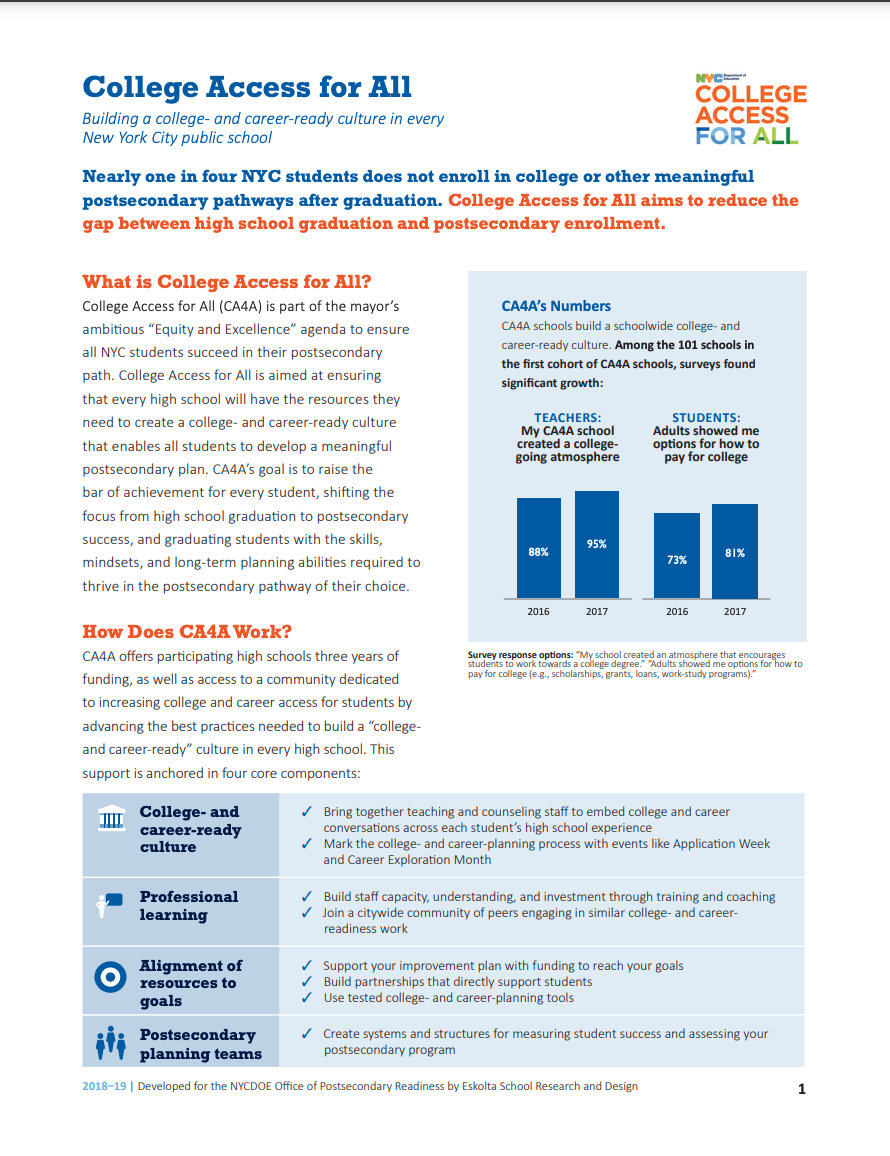
EXAMPLE: College Access for All multipager
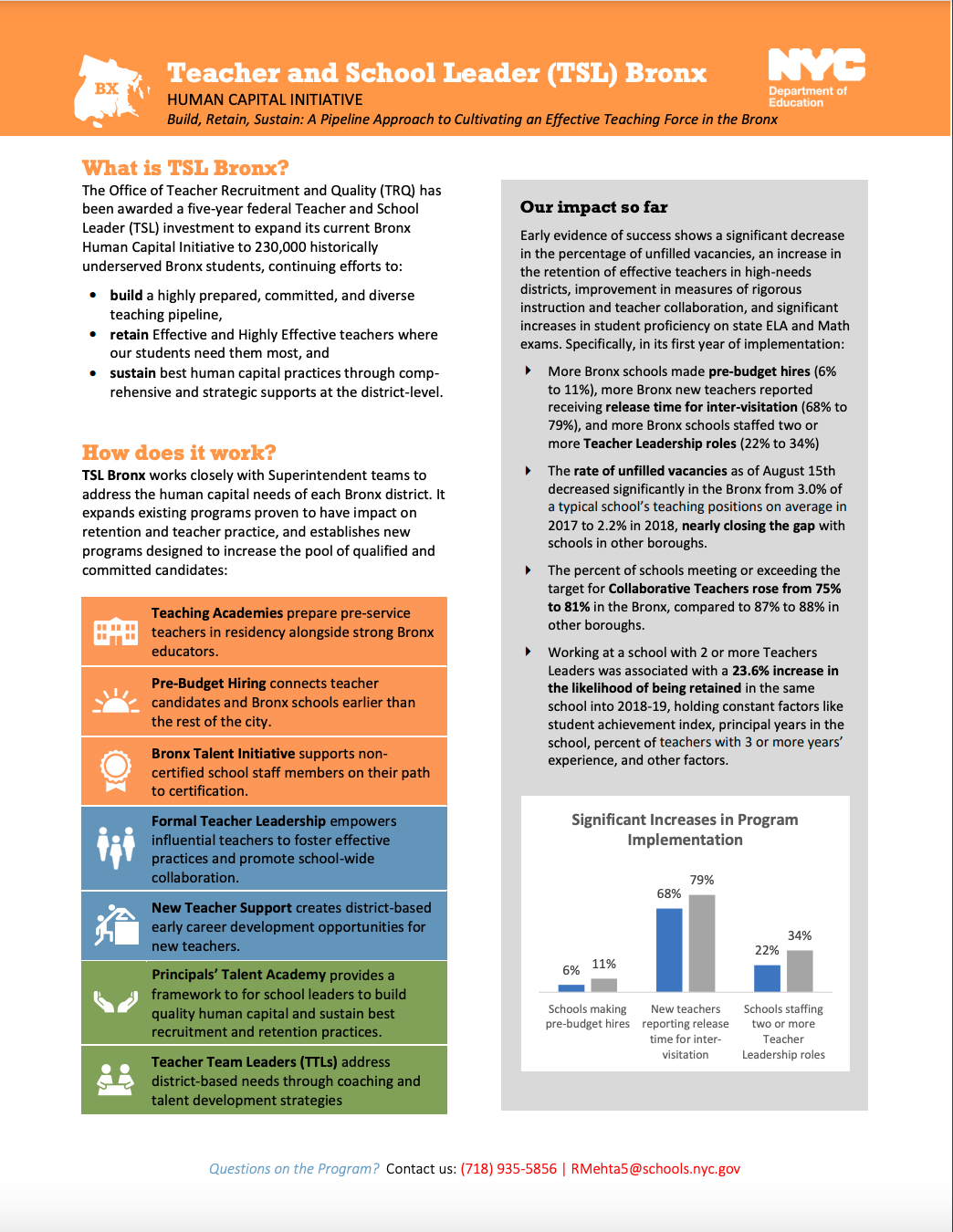
EXAMPLE: Teacher and School Leader one-pager
3. Learning to guide leadership and change systems:
Systems-level Analytic Research
Reports sharing findings from quantitative and mixed-methods analysis of data spanning multiple schools or districts, paired with recommendations
Program Impact Research
Reports evaluating the impact of district- and network-level initiatives
Policy Memos and White Papers
In-depth reports on a program, approach, or policy providing recommendations for solutions backed by evidence derived from field research and data
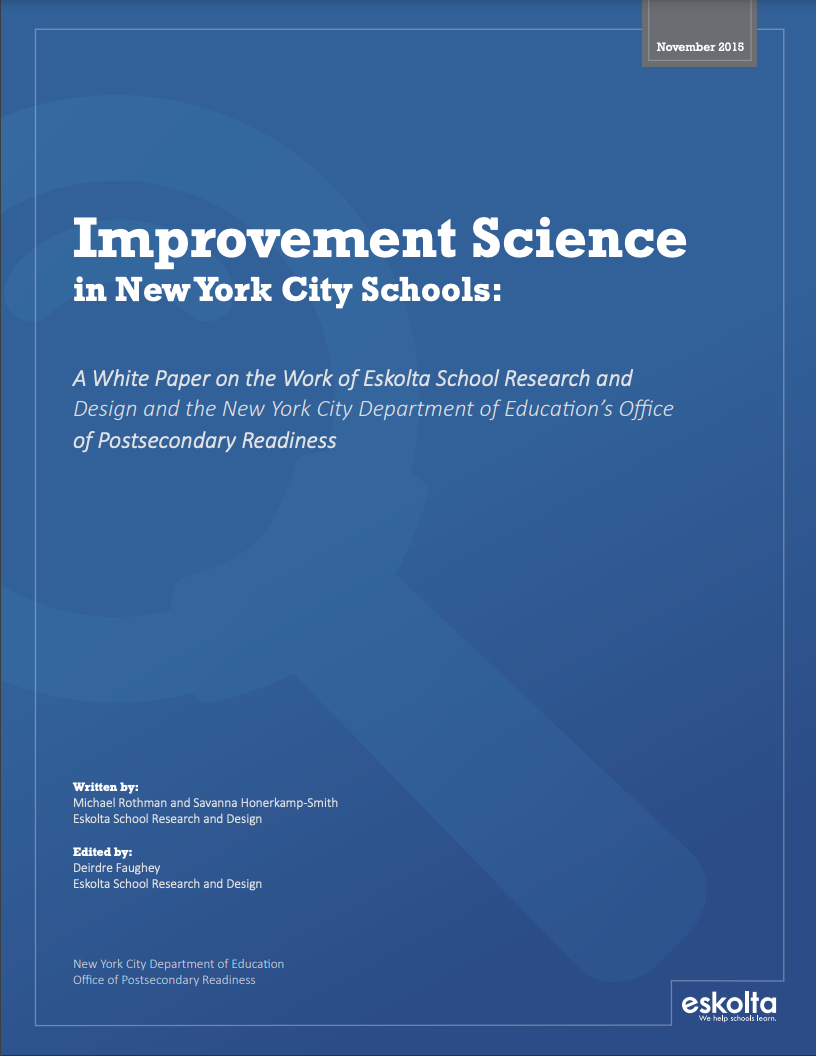
EXAMPLE: Improvement Science in NYC Schools

